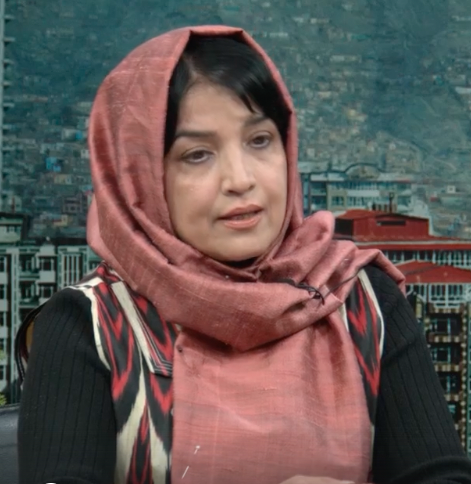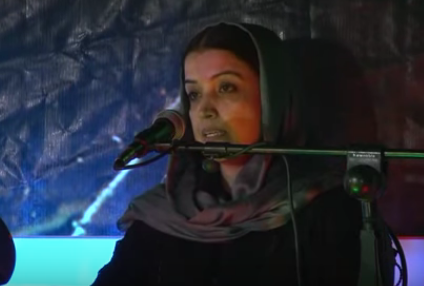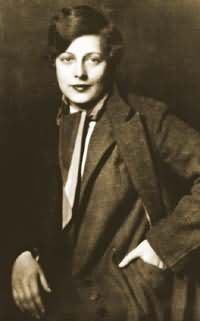
LL Cool Jay (James Todd Smith) (born January 14, 1968) – U.S. rapper, songwriter – “Father”
Second verse and chorus of “Father”
Moms got tired of the beatings said, “Yo, we got to go”
Packed up her bags we bounced out the do’
She said, “I ain’t takin these whippin’s no mo’
I wanna live to see my little Todd grow”
I remember tear drops on my pops face
Lookin down at me standin on the staircase
Handsome brother with a smooth goatee
Makes me wonder why he act so ugly, you feelin me? (I’m feelin you)
[Chorus: LL Cool J and singers]
(all I ever wanted) All I ever wanted
(all I ever needed) All I ever needed
(was a father) was a father
(that’s all) That’s all!
(all I ever wanted) All I ever wanted
(all I ever needed) All I ever needed…
was a father
LL Cool Jay performs "Father" live

Khaleda Froagh ( خالده فروغ also spelled Frough or Forough or Feroogh) (born January 14, 1973) Afghani poet, writer
Read the poem "Wicked Blasphemy" by Khaleda Froagh
https://afghanmagazine.com/post/186316500649/the-dark-blasphemy
About Khaleda Frough خالده فروغ
Here is Khaleda Frough in her own words from her book The Fate of the Hands of the Generation of the Light.
I was born in Kabul on January 14, 1973. Since my birth, my ears have never been empty of poems because my mother enjoyed poetry and sometimes wrote her verses.
In the beginning, I borrowed from my mother’s library the Koran, Hafiz’s collection of poems, Saadi’s Golestan, and the sonnets of Bedil. My father had a generous character. I loved him. When I was in elementary school, in my adolescent mind, no one was stronger than my father, he was a champion, and no one could defeat him.
I graduated from Lycee Mariam. I graduated from the school of literature from Kabul University. In 1994 I produced Dari programs at Radio Television Kabul. Now I’m a managing director of Sadaf, a seasonal woman’s journal.
Visit Khaleda Froagh's Facebook page (in Dari/Farsi) here
Khaleda Froagh's Wikipedia page (Dari/Farsi)
https://fa.m.wikipedia.org/wiki/خالده_فروغ
Khaleda Forough (born 1351 in Kabul) is an Afghan poet, professor at the Faculty of Language and Literature of Kabul University and a member of the Afghan Pen Association. [1] [2]
Forough is one of the most important contemporary female poets in Afghanistan. Critics such as Mohammad Kazem Kazemi and Mahboubeh Ebrahimi believe that she shows a masculine point of view in her poetry, and the influence of contemporary poetry masters, especially "Wasef Bakhtari" can be seen in her poems. [3] [4] The ghazal style is one of the characteristics of Forough's poetry. [5] But Forough rejects the duality of feminine and masculine poetry and believes that the poet's gender has no effect on poetic feelings and emotions. [6]
One of Khaleda Froagh's poems
کوچه ها خالیستند و انتظار آشفته است
مغز ساعت سکته کرده روزگار آشفته است
شعرهایش زرد و خاکی میرسند و سبز نه
سال، سالِ مردن و ذهن بهار آشفته است
بادهای ناموافق ناموافق میوزند
رنگ و روی برگها رفته و سار آشفته است
«چون بسی ابلیس آدم روی» طوفش میزدند
کعبه خود را بسته است و بیشمار آشفته است
تا خبر را خوانده که فردا قیامت میشود
خاک، نبضش می زند، خواب مزار آشفته است
دست کی وضعیت قلب مرا برهم زده؟
که زمینم که زمینم، در مدار آشفته است
ماهِ من لبریز تنهایی، نگاه تو کجاست؟
این پیاله، این منِ شبزندهدار آشفته است
تو نمیآیی که خورشیدی شود تقویم من
بیقرارم، بیقرار، این بیقرار آشفته است
|| خالده فروغ ||
Khaleda Froagh at a poetry night in 2013
 here
here

Emily (Mickey) Hahn (born January 14, 1905) – U.S. journalist, adventure writer, feminist
Read excerpts of China To Me by Emily Hahn at Google Books
Listen to a podcast about Hahn's travel adventures here
Read a list of Emily Hahn's articles for the New Yorker magazine
Read a list of Emily Hahn's books here

Albert Schweitzer (born January 14, 1875) – Swiss medical missionary, humanitarian – On the Edge of the Primeval Forest (1924)
Read about Albert Schweitzer here and here
Read an alternative viewpoint on Albert Schweitzer at the
African Insights blog
Read online the book On the Edge of the Primeval Forest, Schweitzer's memoir of his medical missionary work in Gabon, here